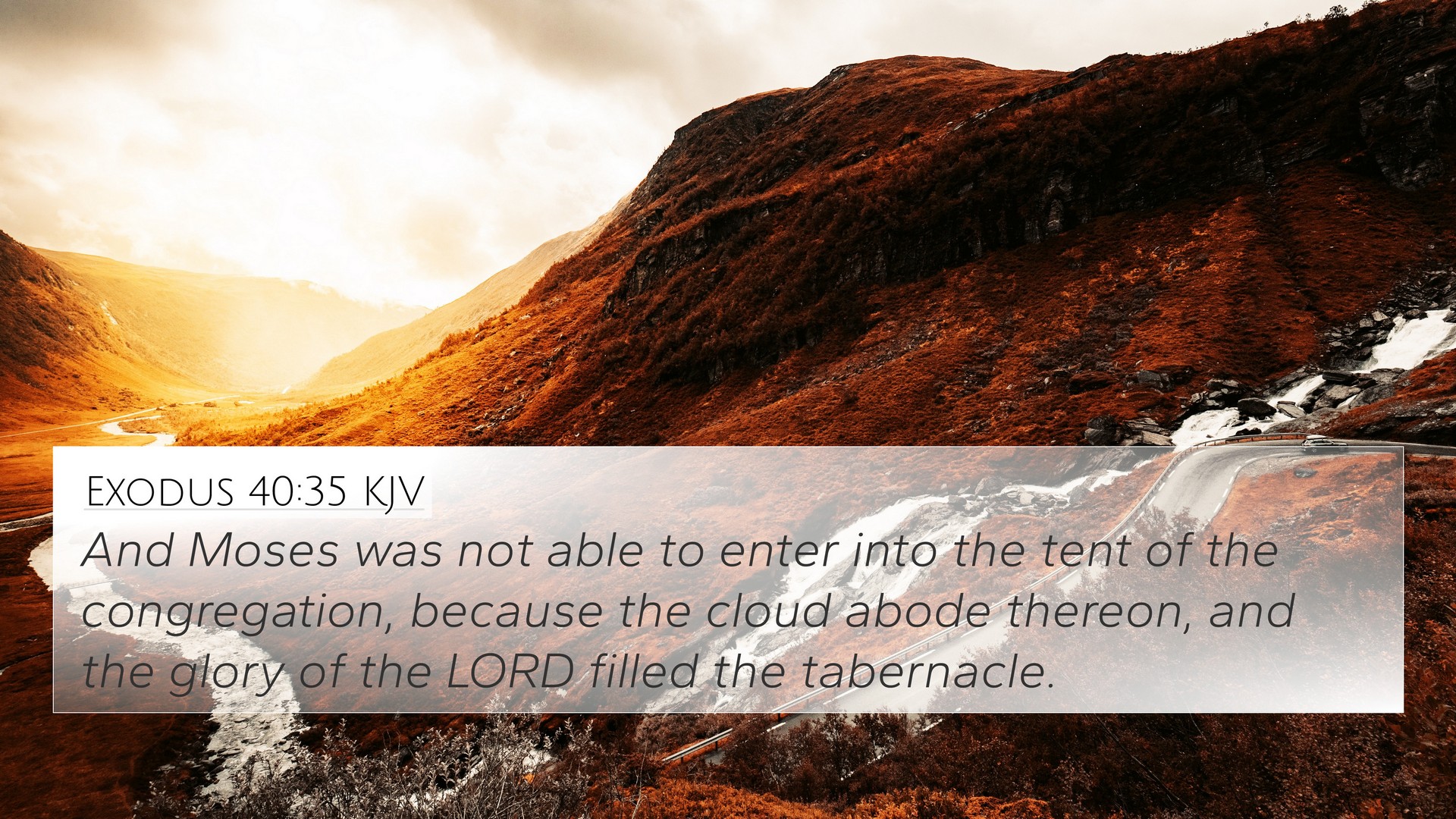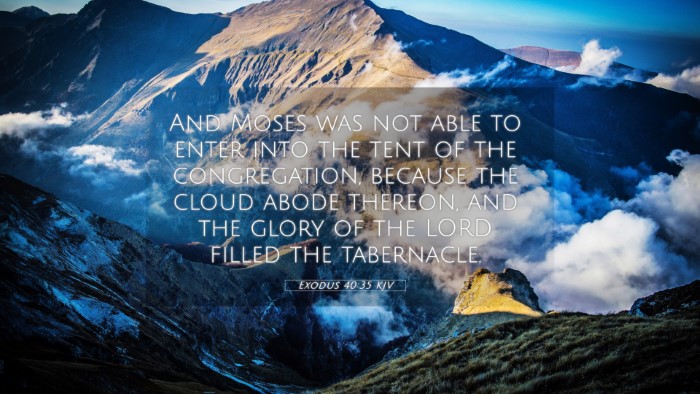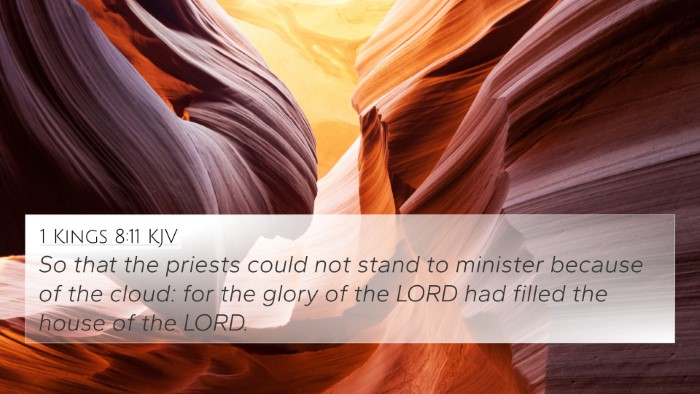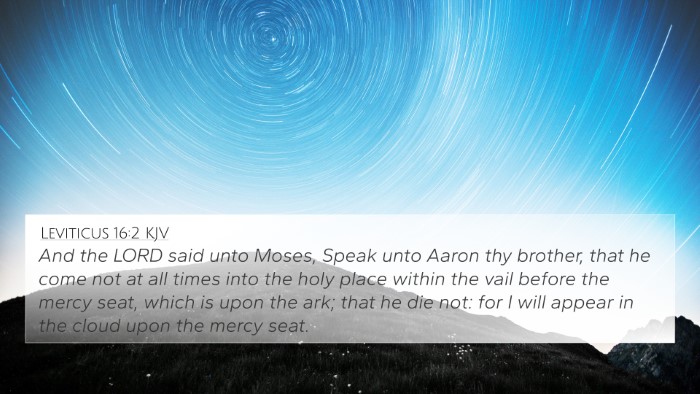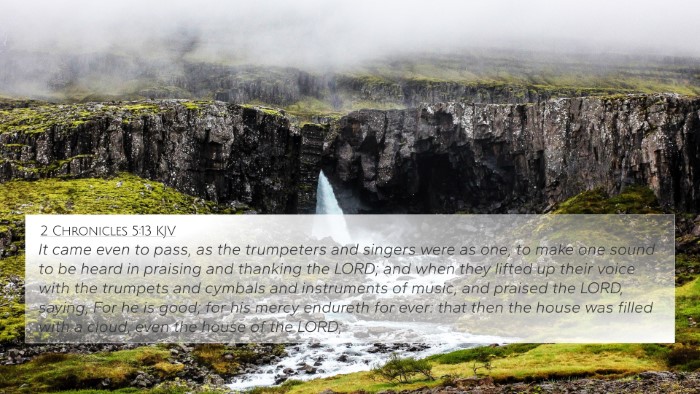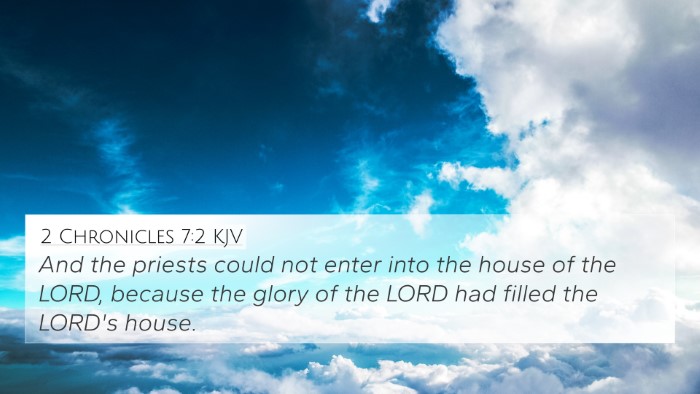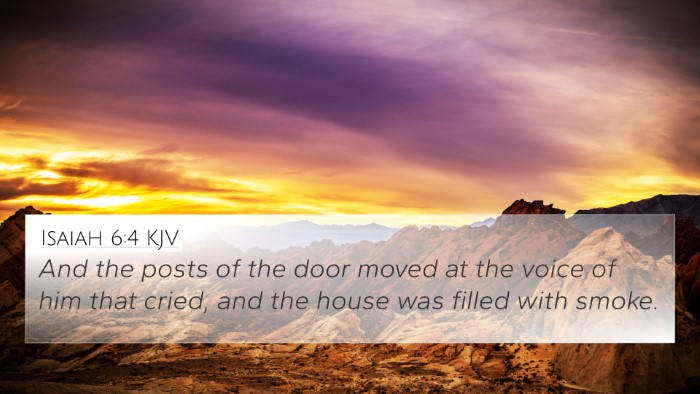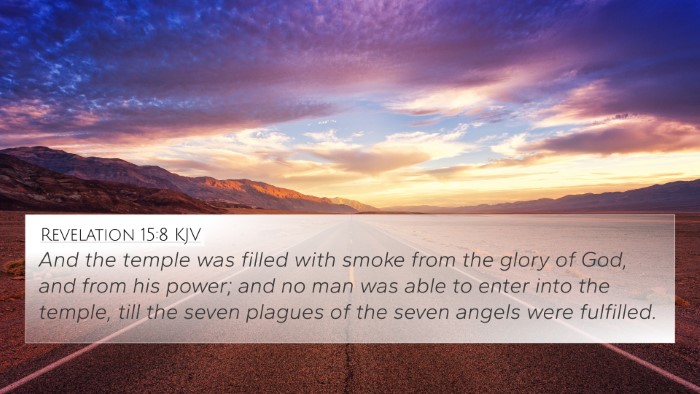Understanding Exodus 40:35
Exodus 40:35 states, "And Moses was not able to enter into the tent of the congregation because the cloud abode thereon, and the glory of the Lord filled the tabernacle." This verse marks a significant moment in biblical history, highlighting the divine presence of God among His people. In this passage, we find the culmination of Israel's journey through the wilderness, where God's presence, symbolized as a cloud, signifies His approval and protection.
Insights from Public Domain Commentaries
Matthew Henry's Commentary
Matthew Henry emphasizes that this moment reflects God’s acceptance of the tabernacle. The glory of the Lord filling the tabernacle illustrates that God’s presence is not only among the Israelites but also intimately involved in their worship and community life. Henry notes that Moses, representing the Law, is unable to enter the tabernacle due to the overwhelming holiness of God’s presence, signifying the need for proper mediation between God and humanity.
Albert Barnes' Notes on the Bible
Barnes comments that the cloud representing God’s presence prevents Moses from entering, which symbolizes that the divine and human realms are separate. He points out that this incident signifies God’s complete control over His dwelling and emphasizes the sacredness of the tabernacle. According to Barnes, it shows that Moses, while a leader and prophet, is subjected to God’s authority and holiness.
Adam Clarke's Commentary
Adam Clarke expands on the significance of the cloud and glory in Exodus 40:35 by mentioning that it serves as a divine indication that God has taken up residence among His people. Clarke posits that the inability of Moses to enter the tent signifies the need for a mediator, and foreshadows the role of Christ as the ultimate mediator between God and man. The glory of God filling the tabernacle is a precursor to the New Testament revelation of God's presence in Christ.
Thematic Connections
This verse provides rich thematic connections within the Bible. It reflects the broader biblical themes of:
- The holiness of God.
- The necessity of mediation (Moses - Christ).
- The tangible presence of God among His people.
- The transition from the Old Covenant to the New Covenant, where God's presence dwells in the believers through the Holy Spirit.
Cross-References for Exodus 40:35
To deepen the understanding of Exodus 40:35, here are several cross-references that illuminate the theme of God's presence and holiness:
- Leviticus 16:2: God instructs Aaron about not entering the Holy Place without proper protocols.
- 2 Chronicles 7:2: Solomon’s temple is filled with the cloud of God's glory.
- Acts 7:44-45: Stephen speaks of the tabernacle and the presence of God in the wilderness.
- Hebrews 9:1-5: A description of the tabernacle's structure and its connection to the heavenly.
- John 1:14: “The Word became flesh and dwelt among us” signifies God’s ultimate presence.
- Revelation 21:3: God dwelling with people in the new Jerusalem represents ultimate fulfillment of His presence.
- Isaiah 6:1-3: Isaiah’s vision of God's glory underscores the holiness and majesty of the Divine.
Tools for Bible Cross-Referencing
For those eager to pursue a deeper study guided by bible verse cross-references, consider utilizing the following tools:
- Bible Concordance: Helps find key terms and related verses.
- Bible Cross-Reference Guide: Offers systematic links between related scriptures.
- Cross-Reference Bible Study Methods: Techniques to enhance study through comparative analysis.
- Comprehensive Bible Cross-Reference Materials: Collections designed to aid in identifying biblical connections.
- Bible Reference Resources: Useful for sermon preparation and thematic explorations.
Conclusion
Exodus 40:35 serves as a profound reminder of God’s holiness and His intimate presence with His people. The inability of Moses to enter underscores the gravity of divine majesty and prepares readers for the greater revelation of God's presence in Jesus Christ. As we explore similar themes through scriptural cross-referencing, we deepen our understanding of God's plan and His continual work throughout the Scriptures.
